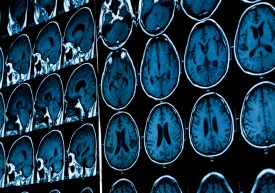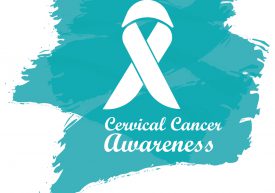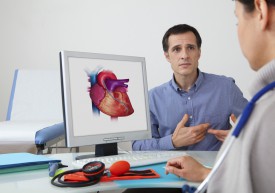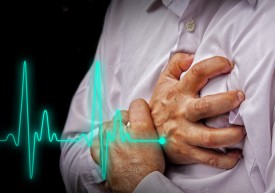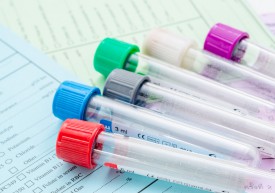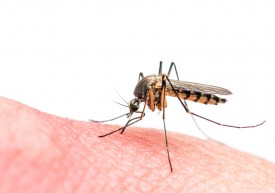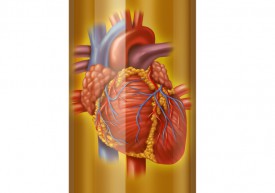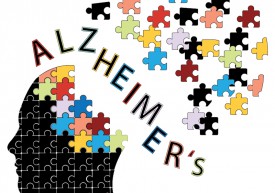The risk of dementia in women could be reduced when women take oestrogen supplements before or at the start of the menopause and continue taking them for a few years. This conclusion is drawn from findings in a doctoral thesis from the Norwegian University of Science and Technology. In the corresponding study, brain MRIs of women who had been...
Featured Posts
-
How to Use the Coherence Principle in E-learning
-
The Modality Principle: Rationale and Limitations
-
Vad är Kliniskt Resonemang och Varför är det Viktigt?
-
Applying the Principle of Temporal Contiguity
-
The Principle of Spatial Contiguity
-
Är det Värt att Investera i Adaptiv e-Utbildningsteknik?
Coffee lovers rejoice: regular caffeine does not cause extra heartbeats
This study is published in the Journal of American Heart Association and led by Dr. Gregory Marcus, a cardiologist from the University of California-San Francisco.
It is a popular belief that regular caffeine intake leads to palpitations or extra heartbeats. This comes with the risk of heart problems, stroke, and even death in rare cases! However, this new study questions...
Cervical cancer: the importance of regular screening.
Cervical cancer, a cancer that affects many women. Fortunately, more and more women undergo regular screening and as a result the number of deaths has decreased significantly. However, each year a lot of women still die, suggesting that there is still more that can be done to combat the cancer. It is important to emphasize the importance...
New alcohol advice issued
UK figures show alcohol-related deaths are rising. In 2014 8.697 deaths were registered in the UK – 14,3 per 100.000 people of the population. On January 8th the Chief Medical Officers of the UK have published new guidelines for alcohol consumption in order to limit related health risks. What’s new since the previous guidelines came out in 1995? Learn...
Depression may pass from mothers to daughters
This study is published in the Journal of Neuroscience and led by Dr. Fumiko Hoeft by the University of California-San Francisco.
Depression, a disease we all know. Worldwide, millions of people are affected by depression. Fortunately, we have effective medication and a lot of risk factors are known. However, the precise pathophysiology remains unclear. In one of the latest studies...
3D-printed heart can be beneficial for complex heart surgery
A presentation at the European Association of Cardiovascular Imaging EuroEcho-imaging 2014 conference.
Congenital heart disease often needs a complex and invasive surgical procedure to create a well-functioning heart. Trained Cardiothoracic surgeons have to plan an adequately approach and technique to operate safe and repair defects. Currently, these plans are based on CT- and MRI-scans made pre-operatively. Despite these modern scans...
Brain levels of vitamin B12 decrease with age and are prematurely low in people with autism and schizophrenia
A study found that brain levels of vitamin B12 are significantly lower in elderly people and are even lower in people with autism or schizophrenia, compared to peers at similar ages. The authors explain that these findings are interesting, because the levels of B12 in the blood do not show these differences. This lack of vitamin B12 in the...
Troponin T test provides possible one hour diagnosis of heart attack
A new cardiac troponin high sensitivity test by Roche reduces the observation time that is needed to diagnose a heart attack by troponin from 3 -6 hours to just 1 hour. This much faster diagnosis can lead to better prospects for patients who suffer from a heart attack, because fast treatment is essential as 30 minutes of delay increases...
Researchers study hospital readmissions from post-acute care facilities
Researchers from the University of Colorado School of Medicine found specific risk factors that may contribute to the need for readmission to the hospital after a stay in post-acute care facilities. Of these readmissions, nearly half occurred within 14 days after leaving the hospital. The need for invasive devices, for instance a feeding tube or urinary catheter, and advanced...
Better outcomes for pregnant women at trauma centers
A new study from the State of Washington, USA
Traumatic events during pregnancy are a subject of minor attendance. Unfortunately, approximately 8 percent of pregnant women sustain traumatic injuries. These injuries can result in major problems for both mother and neonate. Neonatal complications are preterm labor, low birthweight and meconium at delivery.
There are different types of trauma units in the...
There is a need to recognize heart attack symptoms more quickly
Patients suffering from a heart attack could limit damage to their heart, if they recognized symptoms earlier and if they sought immediate treatment.
An ST-elevation myocardial infarction (STEMI) is a life-threating condition in which one or more coronary arteries is occluded by a thromboembolism or another pathological mechanism. The door-to-balloon time is the interval of time that goes from the...
Cancer screening has never been shown to ‘save lives’, argue experts
A new report argues that cancer screening has never been shown to save lives, although the harms of screening are certain. The authors state this is because of reductions in disease specific mortality rather than in overall mortality. They therefore claim that overall mortality should be the benchmark against which screening is judged and call for higher standards of...
How obesity promotes colorectal cancer
Scientists discovered a biological relation between obesity and colorectal cancer. In addition to this, they have identified a drug that might prevent the development of colorectal cancer. The researchers found that obesity is associated with a decrease of the human Guanylin in the intestines. This decrease leads to deactivation of a tumor suppressor pathway. Compared to lean people, morbidly obese...
Sleep quality affected by eating habits
A recently published study in the Journal of Clinical Sleep Medicine, suggests that eating products with little fiber and much saturated fat, negatively affects your slow-wave sleep. This is an important stage of sleep where physical and mental energy is restored. The investigators also found that food with a lot of sugar is linked to more sleep disruptions.
The participants...
Stroke risk for older men who take alpha-blockers
This new study was published on the Canadian Medical Association Journal and was led by Dr. Chao-Lun Lai, from the National Taiwan University Hospital, Hsin-Chu Branch.
Stroke costs a lot of lives each year and has far reaching consequences. In America stroke kills nearly 130,000 people each year, which means that every 4 minutes an average of one American dies...
Zika virus: causes, symptoms and treatment
On the first of February 2016 the World Health Organization (WHO) has labeled Zika “an extraordinary event” and announced that Zika virus in Latin America is a global public health emergency. Moreover the Center for Disease Control and Prevention (CDC) has issued travel warnings for people traveling to areas where Zika virus transmission is ongoing. But what does this...
Sugary drinks linked to increased heart failure in men
A Swedish study found that men who consume more than 400 ml of sugary drinks per day, have a 23% increase in the risk of heart disease compared to men who never or rarely consume these drinks. 42,000 Swedish men completed a food questionnaire in 1998. An observational study was carried out during a 12 year follow up to...
Sugar: should we eliminate it from our diet?
Sugar seems to have developed a reputation as the big bad wolf in relation to health. In numerous studies sugar intake is associated with increased aging, cardiovascular disease, obesity and even cancer. Therefore, some experts recommend to reduce sugar intake or to eliminate it completely. But is it really that bad for our health? This review should give some...
Specific coffee chemicals may ward off type 2 diabetes
This new study was led by Soren Gregersen and colleagues at the Department of Endocrinology and Internal Medicine at Aarhus University Hospital in Denmark.
Coffee and diabetes, two commonly covered topics in the media. A lot of people drink coffee every day, in America more than half of adults drink it daily. Type 2 diabetes is a common disease, striking...
Olive Oil and wholegrains ‘lower heart disease risk’
An extensive study among 130,000 people found that unsaturated fats, such as olive oil, walnuts and whole grains lower the risk of heart disease compared to saturated fats. Participants have filled in a questionnaire and have been followed for 30 years. The questionnaire was repeated every four years during the follow up period, so that changes in diet of individuals have...
Men, take note: eat more fruits to reduce risk of erectile dysfunction
This new study is published in the American journal of clinical nutrition and led by Aedin Cassidy.
Erectile dysfunction can be one of the most distressing conditions a man experiences. It is estimated that around 30 million men in the US have erectile dysfunction. Men over the age of 60 are at greatest risk, though it occurs in around 12%...
Heart valves made from tissue rather than metal may be better for middle-aged patients
Patients aged between 40 and 70 years that need replacement of their aortic valves may benefit from bioprosthetic (donor tissue) valves rather than mechanical (metal) valves.
People that need aortic valve replacement (AVR) can choose between the two mentioned types of replacement. Both valves show equal mortality and morbidity rates 15 years post-surgery. However, each prosthetic valve has his own...
Heart failure drug digoxin linked to premature death
An extensive meta-analysis of nineteen studies that was carried out by the German Goethe University showed that digoxin, a first choice drug used in the treatment of heart failure, actually increases the risk of death. A total of 235,000 cases of heart failure was taken into account in this study.
Though digoxin is known for its potential benefits, it is notorious for its dangerous...
Estrogens may weaken flu virus in women
This new study was published on the American Journal of Physiology – Lung cellular and Molecular Physiology and led by Sabra Klein.
The flu, a disease we are all familiar with, is an infectious disease caused by an influenza virus. Viruses make us ill when they invade our cells and use their machinery to make copies of themselves. The copies...
Eating chocolate linked to ‘lower heart disease and stroke risk’
Moderate chocolate consumption: a way to reduce cardiovascular risk?
In recent years, multiple articles by the media cover the possible beneficial health effects of chocolate consumption, especially in reducing cardiovascular disease. But what is the extent to which this can be taken seriously and what kind of implications does this have for clinical practice?
In a study conducted by the University...
Cardiovascular disease is top killer in US
Cardiovascular disease, such as heart disease and stroke, are responsible for one third of the deaths in the United States. Heart disease and stroke together also appear to be the main cause of death worldwide. It is important to collect data about the main causes of death, in order to achieve better prevention and treatment for these diseases. Though...
Broken sleep raises risk of stroke
A study that was carried out by the University of Toronto, Canada, has found a correlation between sleep fragmentation and brain damage. Some changes in sleeping habits are caused by medical or psychiatric conditions. However, most changes are part of normal aging. When people age, their circadian rhythm changes. Elderly people tend to become sleepy in the early evening...
Blocking brain inflammation ‘halts Alzheimer’s disease’
This new study was published on the Journal Brain and funded by the Medical Research Council and Alzheimer’s Research UK.
Alzheimer’s disease is a big health problem. It accounts for 60% to 70% of the cases of dementia. In 2015, there were approximately 48 million people with Alzheimer’s disease worldwide. With an aging population and no new dementia drugs in...
A biomarker for bipolar disorder
A recent trial performed by the Mayo Clinic (Minnesota) tried to identify protein markers indicative for bipolar disorder. This could be of great help in diagnosing patients and in distinguishing different forms of bipolar disorder. Patients with bipolar disorder, formerly known as ‘manic depression’, experience heavy changes in mood and activity levels. They vary from feeling great and extremely...




